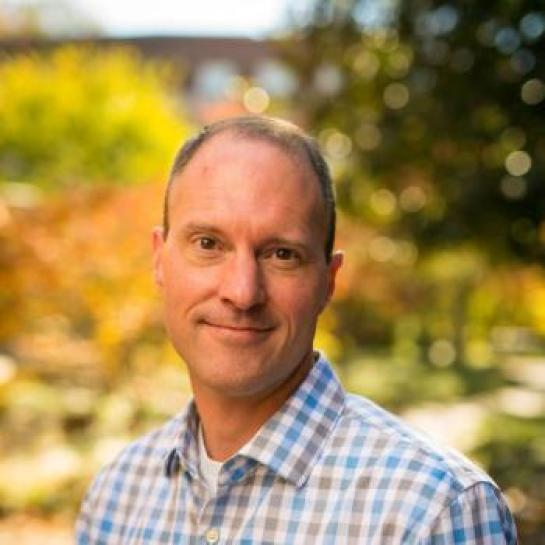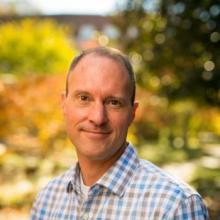Community Matters

A recent thread of exchanges on SPEDPro, one of John Lloyd’s efforts to engage and connect the special education research community, focused on great titles and first lines of journal articles (and other writings). This led to the sharing of some usual suspects like Dickens’s opening lines of Tale of Two Cities, “It was the best of times, it was the worst of times, … it was the spring of hope, it was the winter of despair, we had everything before us, we had nothing before us...” shared by Diane Haager; And, another Dicken’s favorite from David Copperfield, “Whether I shall turn out to be the hero of my own life, or whether that station will be held by anybody else, these pages must show,” shared by Clay Keller. Michael Gerber shared the humor of a piece written by C.R. Reynolds in the early 80’s titled “In God we trust, all others must have data.” (Our field’s mantra?)
As we are slowly moving into the post-pandemic (or at least a lessened endemic) world, I’ve been enheartened by the way our special education research community has come together to support one another and help the communities that our research impacts. This has made me reflect upon what the opening lines of a future text that retells the story of how we seized this opportunity to improve the lives of individuals with disabilities, their family members, and educators could be. Will it mirror Dicken’s ‘we had everything before us’? Will it tell a story of heroes whose efforts greatly enhanced schools’ and societies’ abilities to include, educate, and advance individuals with disabilities? I am hopeful that this positive path forward is in our future.
Yes, we are living in a world in which the pandemic has highlighted broken systems, inequity, racial injustice, and, with the travesties currently playing out in Ukraine, the cruel and evil actions of authoritarian leaders who devalue human life, democracy, and freedom. But, our community continues to respond positively – in our research to support learners with disabilities, in efforts to make our field more diverse and equitable, in our advocacy efforts, and with recent efforts that extend beyond special education to supporting humanitarian efforts across the globe.
As the President of DR this past year, I have enjoyed engaging with our community. I have greatly appreciated the leadership and efforts of Federico Waitoller and Erica McCray in the area of increasing our focus on diversity, equity, and inclusion. Several new DR awards in this area will be announced soon. I also enjoyed the joint reception with the Division for Learning Disabilities and the Division for Emotional and Behavioral Health at the annual convention in Orlando. I look forward to more cross-divisional connections in the future. I’m also very appreciative of the community building and leadership from the members of the presidential line, Kathleen Lane, Wendy Oakes, and Audrey Sorrells, and that of other board members. One effort I’m particularly excited about is the establishment of a new advisory board—Friends of DR—that will allow people with a deep historical knowledge of DR to provide steady guidance and input. Finally, I’m inspired by DR community members’ efforts to support humanitarian causes including offering financial support for a kindergarten in Poland for Ukrainian refugees and raising funds for other aid organizations.
We are a community with heart—and that makes me proud to be a member of DR.
I’ve recently been reading a book by David Fidler, Breakfast with Seneca. In it, Fidler shares elements of Stoic wisdom as a guide to the art of living. Two of these resonate as I write this piece. “All human beings are born for a life of fellowship, and society can only remain healthy through the mutual protection and love of its parts.” – Seneca, On Anger 2.31.7. We are stronger together and when we work to protect the whole of humanity. And, “The goodness of life does not depend on life’s length but upon the use we make of it.” – Seneca, Letters 49.10. Some of us are given more days, some fewer—but we can all devote the time we have to the good cause of making life better. In our realm, for individuals with disabilities, likely the primary motivating factor for entering this field for many of you reading this.
Many of us have had the opportunity to reconnect with colleagues in person, either at our own places of employment or at local and national conferences. In these meetings, I have heard many stories of people emerging from the pandemic exhausted, overwhelmed, and re-considering some of the ‘before times’ ways of engaging with our work. I hope each of us can support one another and our broader community in recharging, and reconnecting with the joy and purpose in our work, with an aim to ensure our impact remains strong and focused on shaping the future. It is important to remember the ‘things desired’ and to strive for those. As Max Ehrmann wrote in Desiderata in 1927, “With all its sham, drudgery and broken dreams, it is still a beautiful world. Be cheerful. Strive to be happy.” And, for our special education research community, continue striving to change the world for the better.
